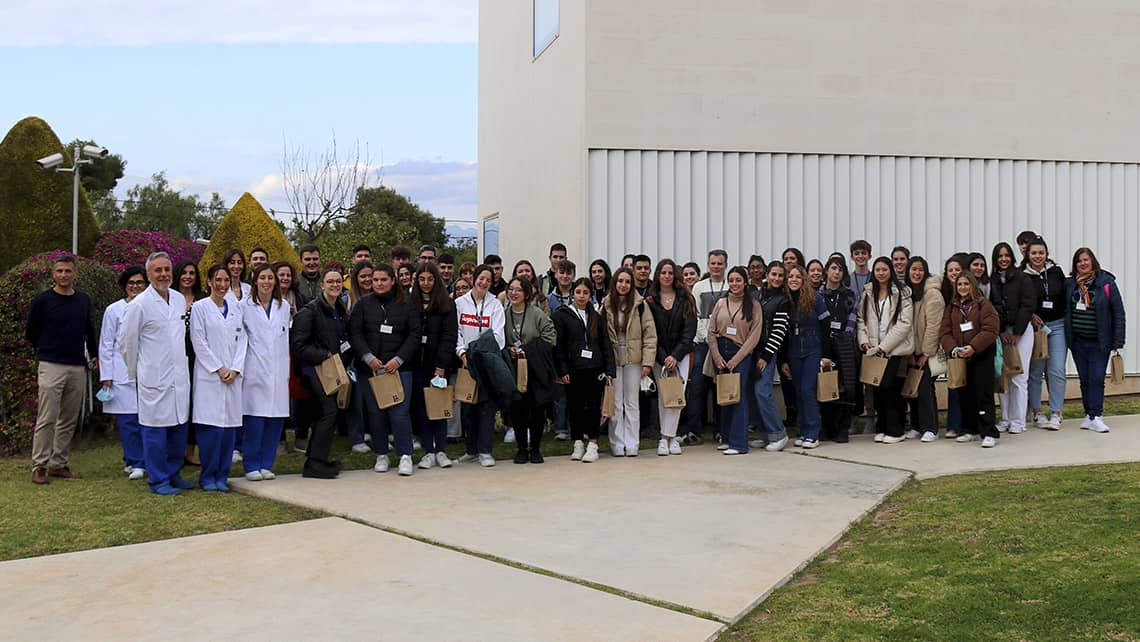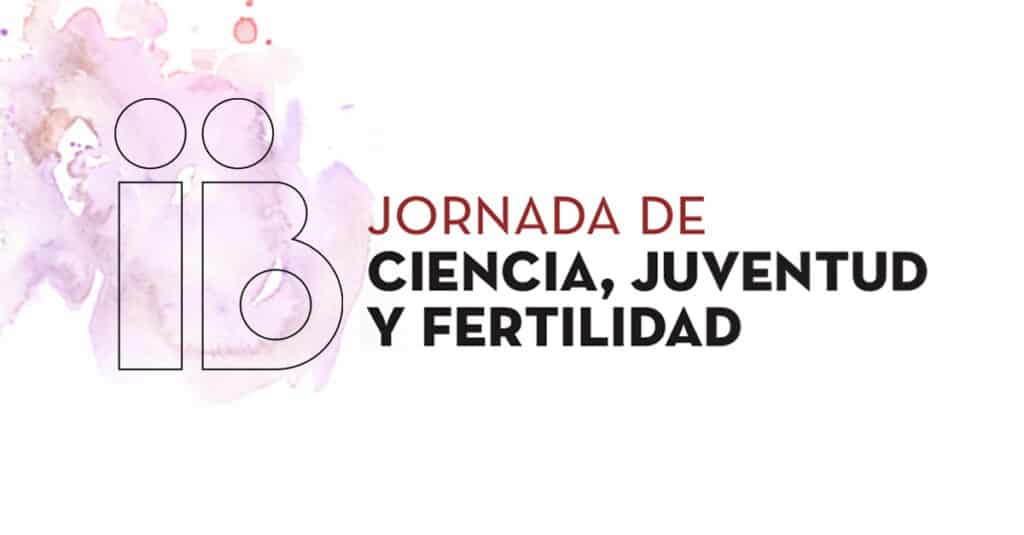Science, Youth and Fertility Day
February, 21st 2023

Fifty students took part in the first workshop on Science, Youth and Fertility at Instituto Bernabeu
The reproductive medicine clinic in Alicante opens the doors to young people with scientific interests and training to share the daily work of its clinics and laboratories.
On the occasion of the recent commemoration of the Women and Girls in Science International Day, Instituto Bernabeu has opened its doors to high school and vocational training students from Alicante’s secondary schools to show how research and science is done in the reproductive medicine clinic, where more than 80% of its scientists are women. More than fifty young people from Colegio San Agustín in Alicante, and from IES María Blasco and CIPFP Canastell in San Vicente del Raspeig have participated, together with their teachers, in this day focused on showing the science behind assisted reproduction, the laboratories that make this work possible and the most demanded job profiles, among other aspects.
Dr José Antonio Ortiz, molecular biologist, shared with the students the opening lecture in which he shared the variety of professional profiles that work in the clinic and that can help to shape their professional future. Instituto Bernabeu has a multidisciplinary staff that includes gynaecologists, biologists, molecular biologists, biochemists, geneticists, pharmacists, endocrinologists, haematologists, urologists, psychologists… Among the Instituto Bernabeu values, there’s a firm commitment to research, science and education, and this is what Dr Ortiz conveyed to students.

The attendees had the opportunity to tour the clinic’s main facilities and laboratories. Under the guidance of embryologist Dori Rodríguez, the students learned about the day-to-day work in the In Vitro Fertilisation (IVF) laboratory, the technique that allows the eggs fertilisation by sperm outside the woman’s body to generate the embryo which will be transferred to the woman’s body.
With Dr Ruth Morales, pharmacist and director of the Genetic and Reproductive Counselling Unit, the students were taken on a tour of the development of genetic studies and learnt how the IB Biotech molecular biology laboratory helps in the prevention, diagnosis and treatment of hereditary diseases. The clinic also investigates the causes of male infertility. Dr Ana Fabregat, an analytical pharmacist, showed the daily work of the andrology and clinical analysis laboratory and the importance Instituto Bernabeu gives to offer personalised solutions.
Another aspect the students have had the opportunity to learn about of the work at Instituto Bernabeu, is the Egg and Sperm Donation Programme, which is essential for enabling maternity and paternity for people who cannot become parents with their own gametes. Dr Eva García, biologist, and Marina Sánchez, from the Egg Donation Department, explained what the donor programme consists of and the strict safety and quality controls are carried out before accepting candidates.
Dr Rafael Bernabeu, medical director, emphasised that “at Instituto Bernabeu, scientific dissemination and education are essential pillars closely linked to our commitment to the society around us”. Dr Bernabeu emphasises that “although it may seem surprising, our team notes on a daily basis that there is a profound lack of knowledge among young people on issues related to fertility” and has highlighted Instituto Bernabeu’s eagerness to publicise this situation and raise awareness among the new generations.
This first session was also marked by the scientific curiosity of the young students who posed countless questions to the clinic’s experts.

